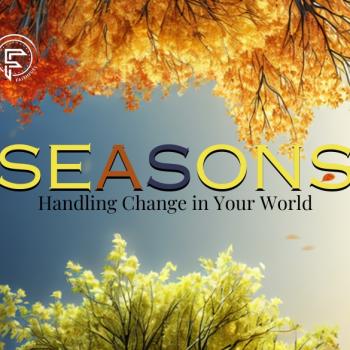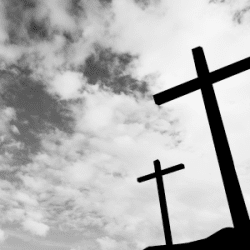Prime Minister Tony Blair's press secretary once said that their party "didn't do God." He meant they were not in the religion business. His views are echoed by those who say that the mainstream media doesn't "get religion."
The majority of people of influence in the West either don't "do religion" or they keep religion out of their public lives. In a secular society, religion is something one does on the weekend—like golf, shopping, or visiting your mother. We are not only supposed to keep religion out of politics, but we are also expected to keep religion out of the classroom, out of the boardroom, and out of the bedroom. The preference for the term "freedom of worship" as opposed to "freedom of religion" implies that one may worship in any manner, but that activity is to stay within the church, temple, synagogue, or mosque and go no further.
Since, in that case, religion is a private matter, it is also assumed that this means one dares not impose one's religion on another person. Religion becomes a matter of taste, not a matter of truth. Therefore, when it comes to the variety of religious experiences, one deals with the religious marketplace as one does everything else in a consumer society. "You pay your money and you make your choice." If the modern secularist thinks of religion at all he thinks of it as a lifestyle choice, and the main virtue of those lifestyle choices must be that they all respect, or at least tolerate, any other religious lifestyle choice.
The Chaldean Archbishop of Mosul, in a prophetic message to the West, has pointed out that these liberal, tolerant values are not only not understood and appreciated by radical Muslims, but they are despised by the radicals. The radical Muslims believe their religion is true, and if it is true, then it must be accepted by everyone. If the way to get people to accept it is by force, then they will offer conversion or the sword.
It is absolutely crucial for the survival of Western civilization for those in the secularist West to start to "get religion." They had better start "doing God." They had better start trying to understand the religious mindset because the vast majority of the world's population is not secular. Most people in the world are religious and the religious majority is not shrinking, as some atheists would like to believe. The opposite is true. The burgeoning population in the Far East, Africa, and South America are religious. Religion is surging back in Russia and the former Eastern bloc countries, and the rise of Islam across the world is impossible to ignore.
Religion is surging because human beings want and need something to believe. It is natural for humans to be religious, and like the radical Muslims, it is natural not only for people to be religious, but for them to believe that their religion is true, and not only true, but more true than any other religion. The idea that all religions are equal and that the heart of religion is to be tolerant of all other religions is, itself, an idea that is antithetical to the vast majority of religious believers around the world. Until the secularists understand this, they will not "get religion" and will continue to see the present conflicts through shortsighted geo-political, economic lens.
If it is natural for religious people to believe their religion is true, then how does one deal with the truth claims of so many different religions? In a shrinking world with mass migration and global travel how should religious people deal with other religions? In the face of competing religions there are only four ways of resolution.
The first is exclusivism, which is simply the view that one religion is superior and all others must submit. This is the theory of radical exclusivism—no matter in what religion it manifests. There are Christian exclusivists just as there are Muslim, Hindu, Buddhist, and Jewish exclusivists. There are exclusive radicals in all religions and they are all wrong.
The second possibility is the path of tolerance. This is the prevailing solution in the liberal, relativistic developed world, but as we have already seen, this approach is inimical to the heart of the religion. Religion is intrinsically exclusive and intolerant. Most religious people who say they think all religions are equal are either lying or they don't really understand the heart of their own religion. One is reminded of the old saw that the teacher of comparative religions was comparatively irreligious.
The third possibility is syncretism, which seeks to adopt elements of various religious traditions and meld them into a new synthesis. This happens accidentally in societies that are already religiously pluriform and it happens consciously in some New Age religious expressions and in religions like Baha'i. Syncretism, however, is a weak solution. Adopting all the options leaves one with a bland and shallow subjectivism. One ends up with a shopping cart religion.




